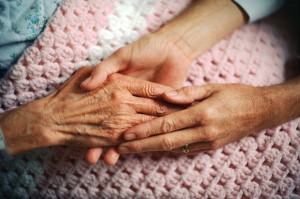An International Right to Die?
 [Last] week the UN’s working group on aging [met] in New York. On the agenda [was] consideration of a new treaty for older persons.
[Last] week the UN’s working group on aging [met] in New York. On the agenda [was] consideration of a new treaty for older persons.
UN statistics show that the number of people over 60 will double by 2050 and be even higher in the developing world–63% to 78%.
One out of four will be women, who are less likely to have access to social security or pensions. (Another fact, which I could not find anywhere in the many speeches and presentations from the last working group, is that global fertiliy decline means these women will have fewer children to support them in their most vulnerable years.)
Along with a treaty there is also talk of a special rapporteur for the aged. There is already a general comment from one treaty body and several other comments refer to such things as social security and the “right” to health.
But so far there is no talk about a right to die. For this we should be grateful, but we should be concerned nonetheless that the UN human rights system is seeking to insert itself into national programs for the elderly. A rights-based approach has already been used to claim a right to abortion by UN human rights staff and activists, even though it is never mentioned in any UN treaty.
What is to stop these committees from reinterpreting a seemingly benign treaty with a right to die in the coming years? Already the language of “autonomy and independence,” prevelant in discussions about the elderly and ingrained in Western culture, has been used by UNFPA to argue for access to abortion for minors without parental consent. What if an old person is not autonomous or independent? Is she then of no use to society?
In fact, reading the Netherland’s statement from last April’s session, it is seems that government thinks all the world should follow its lead. The reality for Dutch elderly is far from the idyllic account their government portrays. The Netherlands legalized euthanasia in 2002 and the following year more than 1600 people were killed in this way. It is unknown what degree of “consent” these killings had. In Belgium, there is already serious talk of combining euthanasia and organ harvesting for the public good. Here in the US, the state of Oregon has refused life giving care to its citizens and offered euthanasia instead.
The fact that these working groups on aging are relatively small, uncontroversial events (with lots of Western involvement) is all the more reason to pay attention.
[This article courtesy of Turtle Bay and Beyond]

